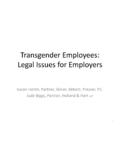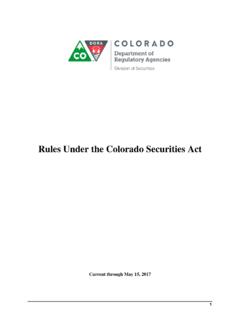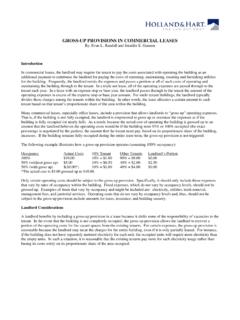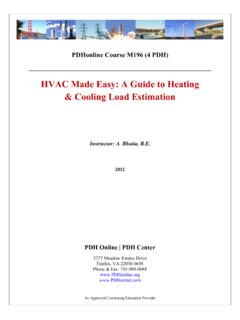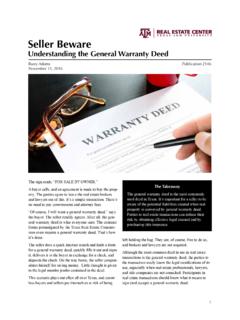Transcription of Buying American: Country of Origin Requirements in US ...
1 2014 Thomson Reuters. All rights Practice Note provides an overview of the most significant Country of Origin (COO) Requirements applicable to federal government contractors, the Buy American Act of 1933 (BAA) and the Trade Agreements Act of 1979 (TAA). It also reviews penalties for non-compliance with COO Requirements and contains practical tips on completing required Country of Origin (COO) rules to federal government contracts can be confusing even to experienced government contracting professionals. This confusion is due in significant part to the contradictory goals of domestic preference laws, on the one hand, and international free trade agreements (FTAs), on the other in other countries, the US federal government has a long-standing preference for awarding procurement contract dollars to domestic companies.
2 The most important domestic preference laws are embodied in the depression-era Buy American Act of 1933 (BAA) (41 8301). However, the US has also entered into a number of FTAs that generally provide for reciprocal non-discrimination in government procurement among the signatories to these most extensive of the FTAs is the Agreement on Government Procurement (GPA), a multi-party agreement under the World Trade Organization, as well as the US s bilateral agreements with Israel, Chile, Singapore and Australia, among others.
3 These bilateral agreements and the GPA guarantee signatory countries non-discriminatory treatment in government procurement activities conducted in other signatory countries and are implemented by the Trade Agreements Act of 1979 (TAA) (19 2501).The overlapping implementing regulations for the domestic preference laws and international FTAs have resulted in a complex regulatory web with many exceptions (and exceptions to the exceptions) to general coverage rules, based on factors including: The contract s anticipated value.
4 The nature of the contract Requirements . The contract vehicle being used for the purchase. Whether the procurement is being conducted on a small business set-aside or sole source basis. The Country in which the contractor is Note provides a comprehensive overview of the most significant COO Requirements applicable to federal government contracts, particularly the BAA and the TAA, and also discusses: BAA and TAA certificates. Penalties for information on making legal US Origin claims in advertisements and product labels, including when and how these claims must be qualified and how they are affected by foreign Origin labeling regulations, see Practice Note, made in USA Claims ( ).
5 BUY AMERICAN ACTThe most significant domestic preference statute is the BAA, which restricts the delivery of foreign end products under federal government contracts by granting a price preference advantage to contractors proposing competing offers of domestic end products. Domestic source preferences that arise in other statutory and regulatory regimes but are beyond the scope of this Note include: The Berry Amendment. The Berry Amendment applies to Department of Defense (DoD) contracts for domestic food, clothing, fabric and specialty metals.
6 The Balance of Payments Program. This program encompasses foreign contracts for supplies and construction. The American Recovery and Reinvestment Act of 2009. Contracts funded by appropriations under this act contain domestic preferences. Buying American: Country of Origin Requirements in US Government ContractsG. MATTHEW KOEHL AND VICTORIA L. STROHMEYER, HOLLAND & HART LLP, WITH PRACTICAL LAW COMMERCIALView the online version at 2014 Thomson Reuters. All rights reserved. 2 Buying American: Country of Origin Requirements in US Government ContractsPRICE EVALUATION PENALTYThe BAA restricts the purchase of items that are not domestic end products through a price evaluation penalty applied to competing offers of foreign end products.
7 It is not an absolute prohibition on foreign end products. If foreign end products are cheaper even after application of the penalty, the contracting agency may properly purchase the foreign end civilian agency procurements, the price evaluation penalty depends on whether the lowest domestic offer is made by: A large business concern. If the low domestic offeror is a large business concern, the contracting officer adds a price evaluation penalty to the low foreign offer equal to 6% of the foreign offer s price. A small business concern.
8 If the low domestic offeror is a small business concern, the contracting officer adds a price evaluation penalty to the low foreign offer equal to 12% of the foreign offer s price.(48 )For DoD procurements, the price evaluation penalty is 50%, regardless of whether the low domestic offeror is a large business concern or a small business concern (48 (b)). This is generally BAA price evaluation penalty is an evaluation tool only. If an offer containing foreign end products is selected for award after application of the evaluation penalty, the contracting agency pays the proposed price and not the (increased) evaluated OF THE BAAThe BAA applies to supply and construction contracts between $3,000 and the dollar threshold for TAA applicability (TAA Threshold).
9 Supply and construction contracts with an estimated value of more than $3,000 and less than the TAA Threshold are subject to the BAA. The TAA Threshold, established bi-annually by the US Trade Representative (USTR), is currently: $204,000 for supply contracts. $7,884,000 for construction estimated value of a procurement includes the value of the base award period and the value of all option periods (48 (b)(2)).However, the BAA is generally waived for contracts above the TAA Threshold. The TAA authorizes the President of the United States to waive the BAA and other discriminatory provisions for eligible products from countries that have signed an FTA with the US, or that meet certain other criteria, such as qualifying as a least developed Country .
10 The President has delegated this waiver authority to the USTR. In general, contracts with an estimated value in excess of the TAA Threshold are exempt from the BAA and are, instead, subject to the COO Requirements of the BAA also applies to certain procurements regardless of value. Certain categories of contracts remain subject to the BAA even where the estimated value of the contract exceeds the TAA Threshold (48 ). The most common categories of procurements which remain subject to the BAA at any value are: Arms, ammunition or war materials.
